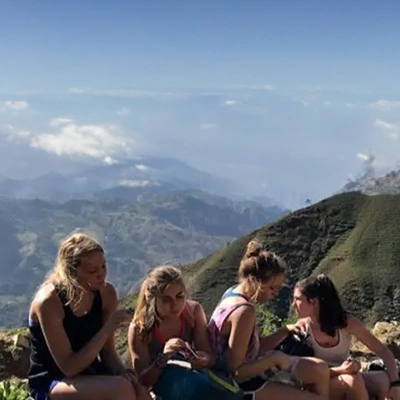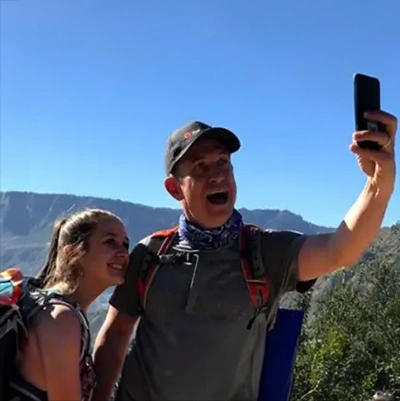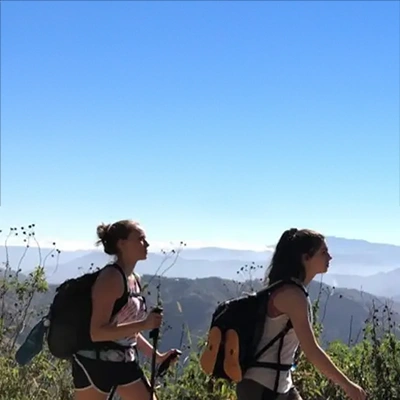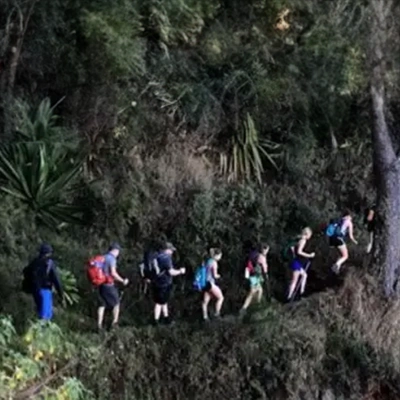A little over a year ago, my dad and I accompanied members of a Christian outreach program on a trip to Haiti for spring break.
At the time, I was in my first year of college. The overall goal of the trip, called “Triple Trek,” was to summit Haiti’s tallest peak, Pic La Selle, to raise money for the surgery center of a hospital in Pérédo, Haiti.
The week was a life-changing one, and my dad and I returned after a week of strenuous mental and physical activity with a new outlook on life, relationships, and trusting God.
Our group was lucky to have traveled when we did and to have avoided any major emergencies. At the same time, after becoming more educated on travel insurance and its benefits, I cannot believe I went on a trip without it. Even more so, I cannot believe my mom let me go on a trip without it.
Here are five instances from Triple Trek alone that remind me why I will never go on another mission trip without travel insurance.
1. Sara’s Malaria Medicine Mishap

When we headed to bed the first night, we all cracked open our little orange bottles with the childproof caps to ensure we were as healthy as possible for the week ahead. I saw Sara searching frantically through her bags, eventually to look at me panic-stricken and say, “I forgot to pack my anti-malaria medicine.”
Needless to say, she spent the week drenched in citronella products and wore sweats to bed every night despite the heat. I don’t think anyone else in history had ever been so grateful to sleep in a cot encased by a mosquito net — you would’ve thought it was a King-size canopy.
Malaria is a deadly disease, and should the worst have happened to her, Sara’s MD mom would’ve wanted to be with her as soon as possible.
Travel insurance, with its emergency travel assistance services, medical coverage, and, in some cases, a medical reunion benefit that pays to have family members join you if you have a medical emergency, could have made that happen.
That’s exactly what happened when Mackenzie, a Seven Corners customer, got sick during her solo trip to Europe.
2. Hikers in a Waterless Haiti

This all-day hike was nowhere near a significant water source, so even those of us who brought refillable water bottles with built-in filter systems were out of luck. It was hot, it was dry, and we were thirsty. For these reasons, three hikers were completely out of water by 2 p.m.
Our group leader called someone at base camp to send more water around noon, but a combination of spotty cell service and a language barrier meant uncertainty about when or how the water would arrive.
When the three hikers ran out of water, we took a short break, baking in the 85-degree sun. After about 15 minutes of prayer (and a few power naps), our group leader told us we had to keep moving in order to reach our camp by dusk. He warned us to be extremely careful and frugal with any remaining water.
Just as we got onto our feet again, we saw a moto full of bags of water coming toward us. We tore into that bagged water like toddlers tearing into presents on Christmas morning.
We were blessed to have received water just when we needed it most, but I got a huge reality check when I saw how close some hikers were to passing out.
If they did faint, they would need medical attention. That alone convinced me to get travel insurance in case I’d find myself seeking foreign medical services in the future.
3. Pop’s Patella Problem

By the time I went to college, I had known for some time that my dad wasn’t as perfect as my four-year-old self had thought. However, it was on this trip I realized for the first time that his body was aging. No matter how much he refuses to admit it, my dad’s body is past its prime in terms of physical strength.
I saw this first-hand (and my heart broke a little) when I watched my dad — the same man whose arms used to lift me up to the sky, whose back used to carry me across the yard, and chest I used to bury myself in when I was cold — struggle to keep up with me as we climbed down the mountain.
Soon after we returned, my dad went to the doctor to find out just what the problem was. If his pain had required emergency medical attention during the trip, paying out-of-pocket for treatment would’ve been less than ideal. A good travel insurance plan could have helped if he had needed medical care.
4. Locating Lost Luggage
After one day of hiking, the group leader said he would never make the mistake of labeling trekking poles “optional” on a packing list again.
TSA considers these hiking poles “sharp objects” that are not permitted in carry-on luggage. Consequently, we stored them in our checked bags, along with the majority of our protein bars and hiking gear.
If our luggage had been delayed significantly (which had happened to some of the hikers in the past), we would have been unable to hike: As transportation was scarce and tightly scheduled, any lost luggage couldn’t have been delivered to us.
Travel insurance offers protection for checked baggage if it’s lost, stolen, or damaged.
5. Side-of-the-Mountain Shoe Slips
Because this hike marked the first-ever Triple Trek, we had no idea the length of time our climb would take. The day we scaled Pic La Selle, what we had estimated as a two-hour hike quickly turned into a seven-hour journey. When we finally reached the mountain’s peak, the sun was beginning to set, and we had to spend some of our descent in the dark.
As someone who isn’t exactly calm and collected, pairing my nervousness with loose rocks and high altitudes was a recipe for disaster. There were multiple instances where I almost went tumbling down the mountain, at one point being brought to tears in fear.
Lucky for me, I had a group of sure-footed fellow hikers who followed closely in front of and behind me to keep me safe in case I stumbled. I had never felt so close to death in my life (besides that one time I had mono in ninth grade).
If anything would’ve happened, I’m not sure what we would have done. While I try to keep that as far out of my mind as possible, travel insurance thinks about all of that for me.
Travel Insurance for Mission and Volunteer Trips
Reflecting on this trip brings to my attention just how incredibly blessed our group was to have returned from the arduous adventure unharmed. Others are not always as lucky. I’d love to go on another trip like this, but I’ll never again make the mistake of not buying travel insurance when I travel abroad.
If you or your group is traveling internationally for a volunteer or faith-based trip, consider travel insurance that protect your health, money, and belongings. Seven Corners offers a variety of plans to fit your needs.
Visit SevenCorners.com to customize your plan on your own or talk to a licensed agent about protecting your next trip.

